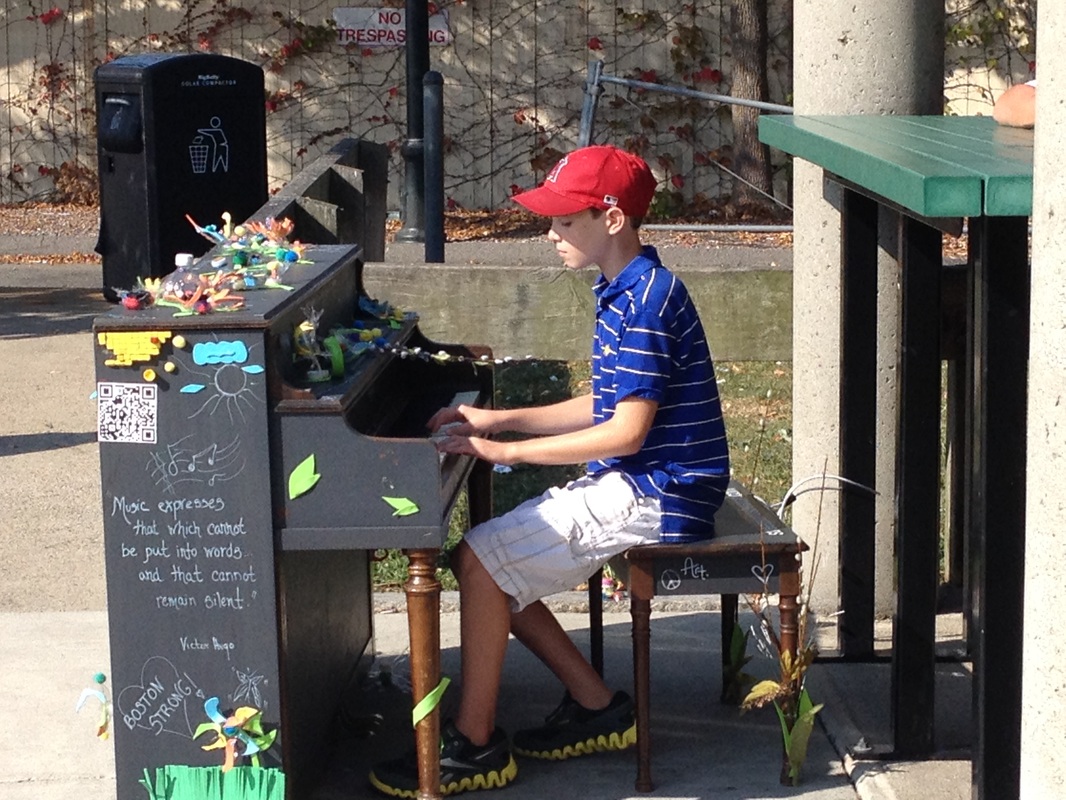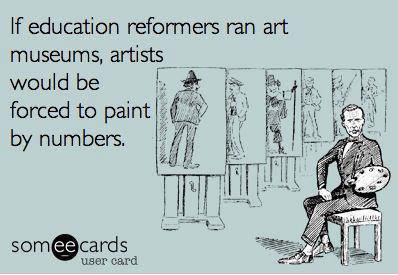--------------------
Dear colleagues,
I've just read yet another FB post by a well-meaning music educator, trumpeting a study that says music boosts concentration. With all due respect to my learned colleagues, we need to stop this.
Every time we support our school music programs by saying "Music boosts test scores/increases concentration and focus/helps students learn math, etc." we sell ourselves short. Music does not exist to support other disciplines, and every time we sell it that way, we perpetuate the myth that we are "specials" rather than core academic classes.
Music pre-dates the development of mathematics, written language, even civilization itself. Unless we put forth the idea that music is one of the fundamental elements of humanity's very existence, we will forever be relegated to the budgetary back burner. If we don't start treating music like it should be front and center, no one else will.
ARS GRATIA ARTIS!
----------------------
Though arguments about music education promoting things like IQ and math scores are thrown around all the time, I would speculate this is in response to a recent article from the WSJ that has also been making its way around (about which I have mixed feelings for another day).
I think this guy has got a lot right. Promoting music education to improve math scores is wrong. More math is much more effective at making math scores go up. And until math teachers are asked to try to incorporate and improve music skills in their classes, the balance of power is unfair and demeaning.
A couple things about this are less right, I think. First, music as one of the "fundamental elements of humanity's very existence" is well and good. But being compulsorily herded into a school building for hours every day where you're forced to sit with people born in the same year as you, and participate in activities that often lack big meaning and relevancy is not exactly a place where I expect humanity's fundamental existence to be too deeply considered.
More importantly and less rogue, the conflation of improving math skills with focus/concentration is what I perceive as a dangerous one. Saying music education improves math scores is wrong (and also correlational/speculative). Saying music education improves focus (also correlational/speculative) is another story. That is not legitimizing for some other discipline's purpose, that's calling attention to a broad way of thinking that is present in music-making activities. No one can prove that transfers to other situations yet (because few, if any, have tried) but anyone who plays an instrument or considers deeply all that such an act entails quickly comes to the conclusion that there's a lot going on in that process and it must require focus. And focus is a good thing in and of itself. If it transfers outside of music, that's even better. But I don't see how it hurts the argument for music or demeans it as a discipline. It's simply a part of what we already do.
If we don't argue for big, broad skills/thinking in authentic arts contexts, what do we argue for? Pitch matching and mallet technique is not going to get us far.



 RSS Feed
RSS Feed